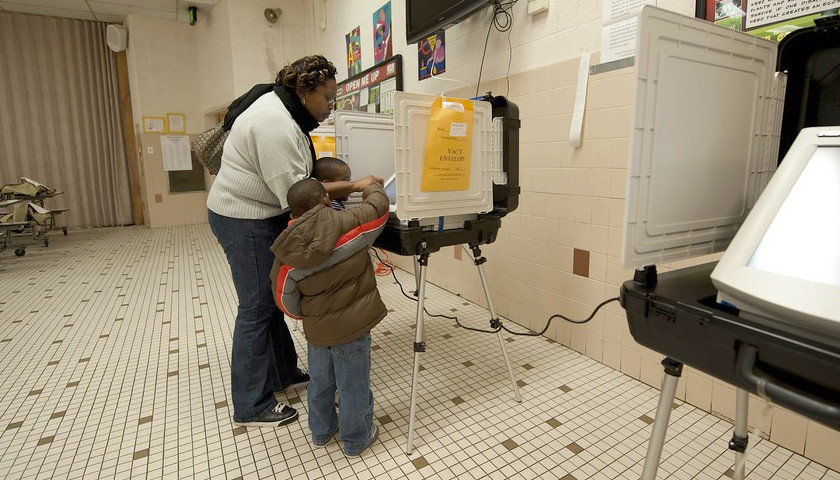by Eric Lendrum
A crucial decision by a federal appeals court on Monday could lead to the Voting Rights Act (VRA) losing much of its strength as a law, should the decision be upheld by the Supreme Court.
Politico reports that the ruling by the 8th Circuit Court of Appeals declared that only the federal government is allowed to sue under a key section of the civil rights law, not private citizens or civil rights groups, which had used the law to do so in the past.
The appellate court’s ruling stated that there is no “private right of action” for Section 2 of the VRA, which forbids voting practices that allegedly discriminate based on race. This ruling, if it were upheld by the Supreme Court, would significantly reduce the scope of protections under Section 2.
“After reviewing the text, history, and structure of the Voting Rights Act, the district court concluded that private parties cannot enforce Section 2,” the judges wrote in their decision. “The enforcement power belonged solely to the Attorney General of the United States.” The decision was reached by two of the three judges on the panel: Judge David Stras, who was appointed by President Donald Trump, and Judge Raymond Gruender, who was appointed by George W. Bush. The third and sole dissenting judge, Chief Judge Lavenski Smith, was also appointed by Bush.
The court’s decision came out of a racial gerrymandering case in Arkansas, brought by the state chapter of the NAACP and other private groups, which claimed with no evidence that the state’s current map of legislative districts is in violation of the VRA due to an alleged dilution of the voting power of black residents. In 2022, a similar ruling by a lower-court judge came to a similar conclusion that he could not decide on the case itself because there was no private right of action.
The 8th Circuit includes the states of Arkansas, Iowa, Minnesota, Missouri, Nebraska, North Dakota, and South Dakota. The decision will most likely be appealed to the Supreme Court, which would make the final ruling on the matter. Two of the current Supreme Court justices have signaled that they support the 8th Circuit’s conclusion, with Justices Clarence Thomas and Neil Gorsuch declaring as such in a 2021 ruling that made it harder to win cases using Section 2 claims.
The ruling was celebrated by Arkansas Attorney General Tim Griffin (R-Ark.), who said that “for far too long, courts across the country have allowed political activists to file meritless lawsuits seeking to seize control of how states conduct elections and redistricting.”
This decision confirms that enforcement of the Voting Rights Act should be handled by politically accountable officials and not by outside special interest groups,” Griffin added.
Far-left groups denounced the ruling, with ACLU spokeswoman Sophia Lin Lakin claiming that “the ruling has put the Voting Rights Act in jeopardy, and is very cavalierly tossing aside critical protections that voters have very much fought and died for.” Lakin said on Monday that the group has not yet decided “our next step of actions,” but suggested that the Supreme Court will “be interested in taking up the case.”
– – –
Eric Lendrum reports for American Greatness.
Photo “Person Voting” by GPA Photo Archive. CC BY-NC 2.0.








